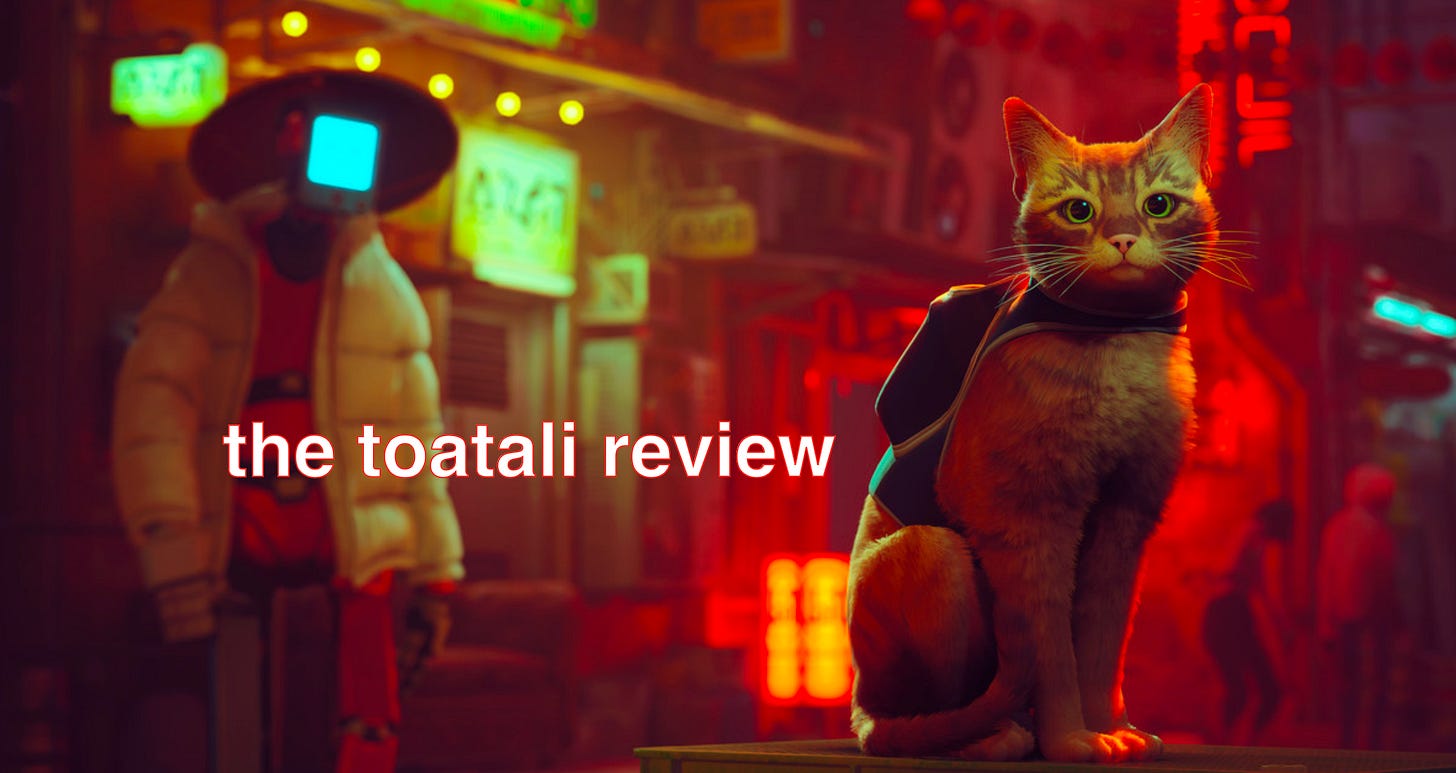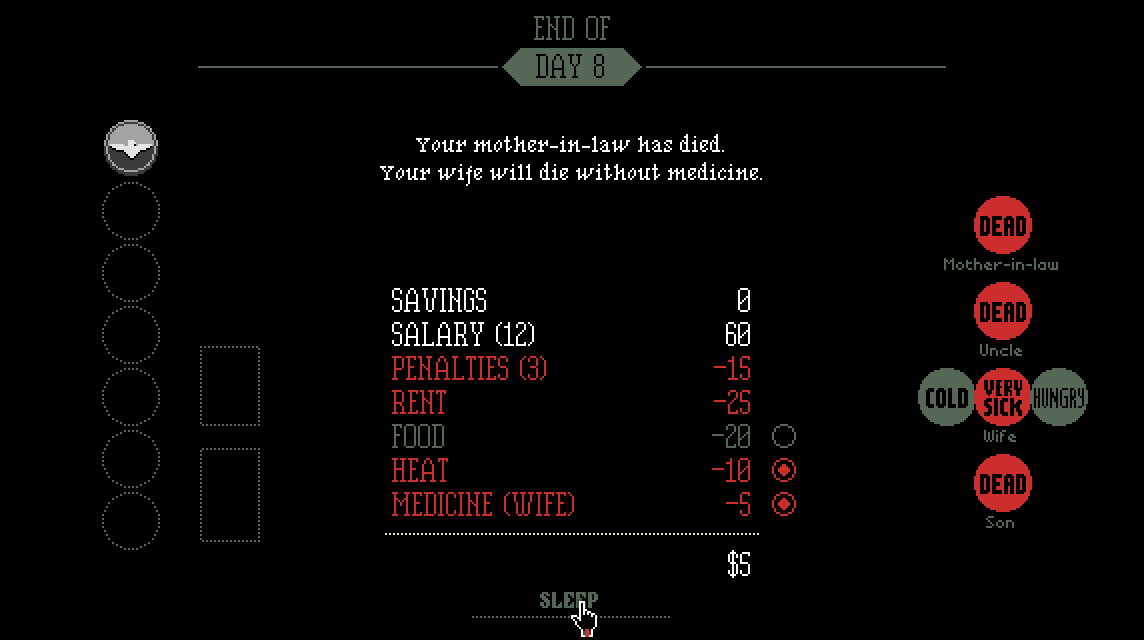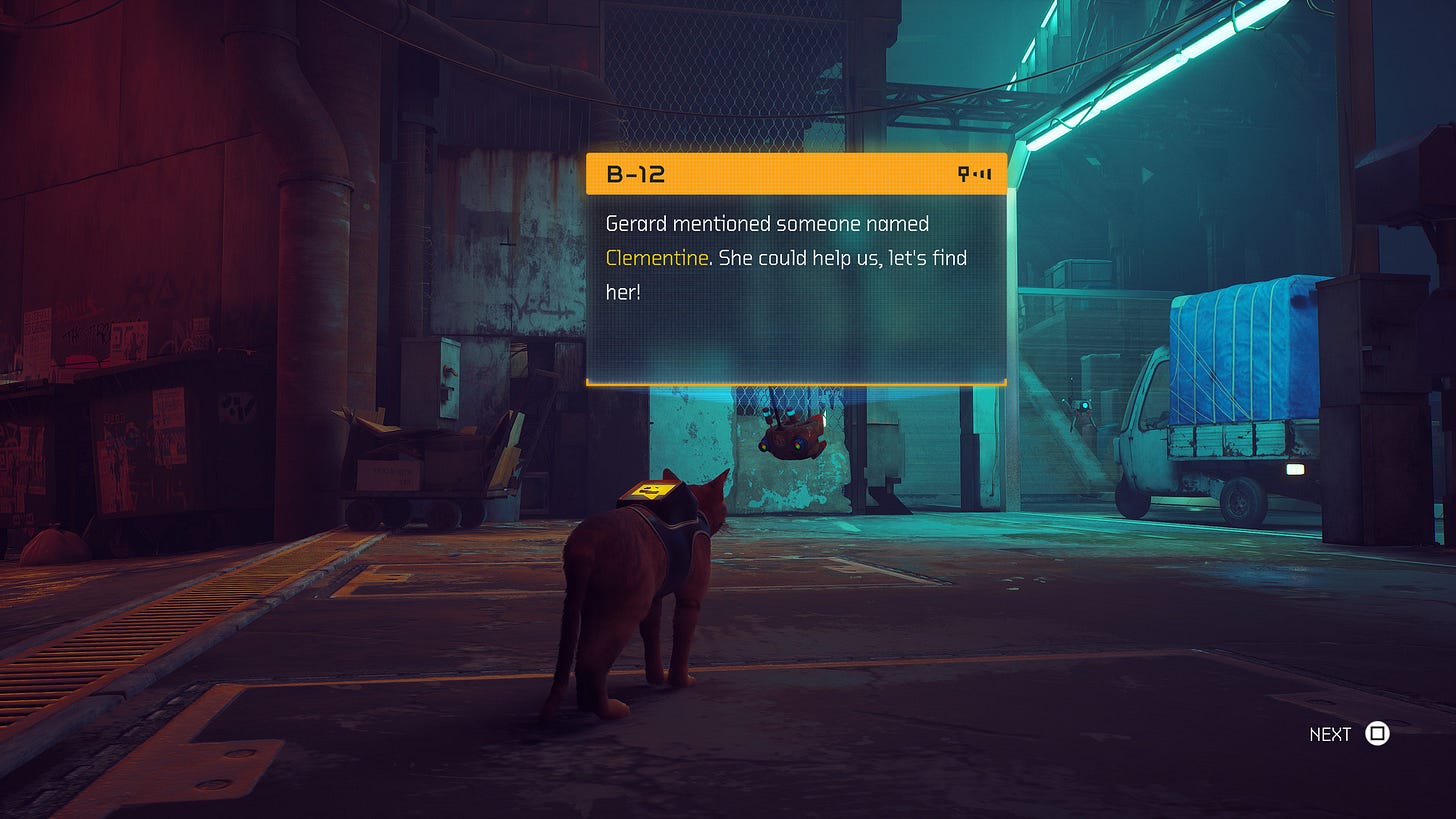One of the most famous quotes from legendary film critic Roger Ebert is that “the movies are like a machine that generates empathy”. Go to the cinema, and the very nature of the medium forces you into empathising with anyone who the camera points at for long enough. When we see a story play out through the eyes of another, something in our primal animal brains connects us with them, a tool that storytellers and filmmakers can use for a variety of effects - from bonding us emotionally to stories of the less fortunate to forcing us to reflect on our own flaws by connecting us with someone cruel.
If films can do this with nothing more than a camera fixed in the right direction, then imagine just how much of an “empathy machine” video games have the potential to be. Not only are we seeing a character’s life through their eyes, we’re also controlling it, putting us into the driver’s seat. Every hit a character takes in an action game is a hit that we also take, every scary moment in a horror game is one we’re forced to share in the exact same manner as it happens to the protagonist.
Some games have managed to exploit this for the pursuit of interactive storytelling. In Lucas Pope’s Papers Please, the extent to which video games can be used like this is tested to impressive lengths. On the one hand, you have the main gameplay, which involves the player acting out the life of a border controller in a fictional Soviet country. Every person that comes through your passport control gate is another life you hold in your hands, and when you’re making the decision to look someone in the eyes and tell them they can’t see their family, the moment is incredibly effective.
But even more striking than that is the way in which Pope’s game connects you with the choices you have to make with regards to the protagonist’s family. The family is off-screen the whole time, only represented to the player by a text box that tells you what each member of the family is feeling each day (eg. your wife is hungry, or your grandmother is cold). By giving the player control of how the protagonist deals with these problems, the empathy machine activates even when these family members are invisible. The mere fact that the player has control is enough.
Given, then, the impressive potential of the video game empathy machine, it’s interesting to see the French developers BlueTwelve Studios try and push it to a new extent with Stray, a game in which you play not as a human, but as a stray cat lost in a cyberpunk city. Unfortunately, for me at least, Stray finds that empathy machine pushed to its limit.
The problem with video game empathy is that controlling a character is a two way street, because a game asks you to empathise with a character as if they were another human being (or, in this case, animal), but also asks you to control them directly, robbing them of the very agency that defines the individual. How can they be a person I feel empathy with if they can’t even make their own decisions? Am I actually feeling empathy for a video game character, or am I simply feeling these emotions for myself, the character be damned.
In Stray, BlueTwelve Studios give you all sorts of options to do things that a cat might well do. You can curl up in a ball and go to sleep if you find somewhere comfortable, you can scratch a carpet if you want, or push items off tall places. There’s even a dedicated button for meowing. The problem is, of course, I’m a human, not a cat. It’s cute in real life to see a cat scratch a post, but I’ve never felt the urge to do it myself, even when given the option in a video game.
Roleplaying as a cat is a surprisingly hard task, because I’m not a cat, and their mindset is so far away from mine as to be impossible to understand, and giving me the option to do cat things just accentuates the point. The game gives me quests to do, but also allows me to lie down on the floor and sleep for a while. That might be understandable if I was a cat playing the game, but I’m not. Why would I press a button just to look at a static image of a cartoon cat until I get bored, when I could be playing the game?
This is perhaps why, when looking for an animal related game to play, I would probably rather suggest Fumito Ueda’s unfairly maligned The Last Guardian over Stray. In The Last Guardian, you control a human, rather than an animal, with Trico, the large bird-like dog companion you have, being treated more like a pet. Trico will often reject the player’s command and behave in a stubborn manner, but having been a pet owner myself, it’s constantly impressive to see the ways in which Trico responds like a real pet - specifically like a real rescue animal. Because I’m not directly in control of Trico, the bond I felt with it while playing The Last Guardian became a lot closer than I’ve ever felt about a virtual animal.
In contrast, Stray often makes me feel like I wasn’t playing as a cat at all. Whenever I’m engaging with the story and the fetch quests, I might as well be playing as a short human character from any other game. Whenever I’m given the option to play-act as a cat, it feels just like that; play-acting. I can’t understand why cats like scratching posts. It’s a feeling that’s impossible to empathise with, because it lays just outside the reach of human understanding; much like imagining the ways in which other animals perceive the world, we can only really think about it in theory.
Before Stray released, I wondered whether bringing an entirely new perspective into the world of video games would pay dividends - generating an unprecedented kind of empathy. Instead, it predictably fails to do that, but in its failure, it does manage to at least start to form the limits of what kinds of empathy games can generate. For now, I think I’ll just replay The Last Guardian.




